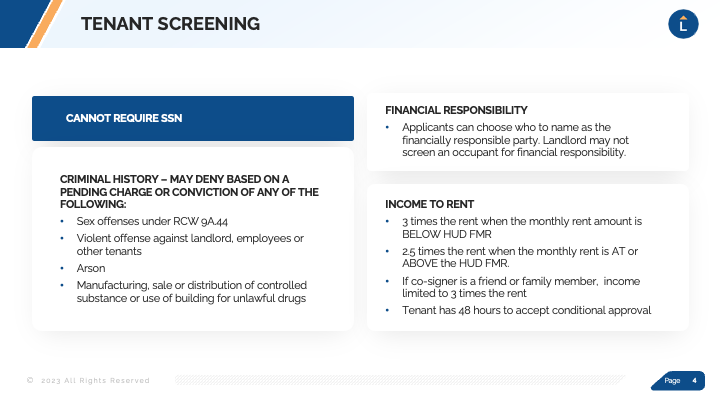This is an update to our previous blog post written in October 2023 with guidelines on serving VAWA language and forms along with a 30-Day Notice to Pay or Vacate for tenancies covered by the Violence Against Women Act (VAWA).
In September 2024, A new interagency statement was released by The U.S. Department of Housing and Urban Development, U.S. Department of Agriculture, U.S. Department of the Treasury, U.S. Department of Veterans Affairs, and the U.S. Department of Justice with an updated statement on guidance as it related to VAWA.
When serving a notice for any covered property, housing providers must include VAWA language and HUD forms 5380 and 5382, informing tenants of their rights under VAWA.
The Violence Against Women Act (VAWA) provides housing protections to vulnerable individuals residing in "covered housing programs" funded by HUD. These protections apply to those in public housing, voucher programs, homeless assistance, supportive housing for elderly persons or individuals with disabilities, and other HUD-assisted housing programs.
VAWA-covered housing includes programs such as:
- Public Housing;
- Housing Choice Voucher;
- Project-based Section 8;
- Section 8 Moderate Rehabilitation Single Room Occupancy (SRO);
- Section 202 Supportive Housing for the Elderly;
- Section 202 Direct Loan;
- Section 811 Supportive Housing for Persons with Disabilities;
- Housing Opportunities for Persons With AIDS (HOPWA);
- HOME Investment Partnerships (HOME);
- Emergency Solutions Grants;
- Continuum of Care;
- Rural Housing Stability Assistance;
- Section 221(d)(3)/(d)(5) Below-market Interest Rate (BMIR), Multifamily Rental Assistance;
- Section 236 Multifamily Assistance; and
- Housing Trust Fund.
VAWA also covers:
- Housing units supported by Treasury's Low-Income Housing Credits (LIHTCs);
- USDA Rural Development (RD) Multifamily Programs (Section 515 Rural Rental Housing, Section 514/516 Farm Labor Housing, and Section 538 Guaranteed Rural Rental Housing Programs);
- USDA RD Section 533 Housing Preservation Grants Program;
- USDA RD Voucher Program;
- DOJ OVW Transitional Housing Assistance Grants for Victims of Domestic Violence, Dating Violence, Sexual Assault and Stalking Program;
- VA Grant and Per Diem (GPD) Program;
- VA Supportive Services for Veteran Families (SSVF) Program; and
- HUD-Veterans Affairs Supportive Housing (HUD-VASH).
VAWA guarantees tenants the right to report crimes or emergencies from their homes, regardless of assistance status. For evictions, housing providers must include VAWA language and HUD forms 5380 and 5382, informing tenants of their rights under VAWA. These rights extend to victims of domestic violence, dating violence, sexual assault, or stalking, irrespective of gender or identity. Tenants may assert their VAWA protections by submitting the necessary certification within 14 business days of receiving the eviction notice.
VAWA LANGUAGE
If the lease violation(s) detailed herein is/are the result of domestic violence, dating violence, sexual assault or stalking, we want to ensure that you understand your protections under the Violence Against Women Act (VAWA). VAWA protections are not only available to women but are available equally to all individuals regardless of sex, gender identity, or sexual orientation. HUD’s Notices under VAWA are attached to this notice. If this is applicable to you and you wish to exercise your rights under VAWA, you may do so by completing and submitting the Certification for (or other form of Alternate Documentation as specified in the Notice and Certification), so it is received in the management office no later than 14 business days from the date of your receipt of this notice.

